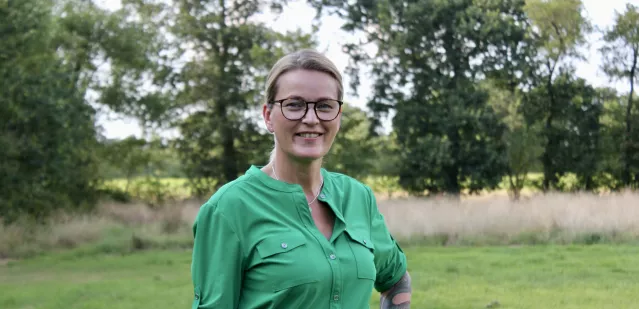
Need for more research
The professorship (of applied sciences), which will start on 1 September 2022, originated from the Content & Media Strategy master programme, which developed within three years into the most popular master programme at NHL Stenden University of Applied Sciences. Bianca Harms, initiator of this master programme and lecturer at NHL Stenden for almost 20 years, has been appointed Professor of Applied Sciences in Transformational Media. “We realised that there is a need for more research into transformational media; media that focuses on bringing about positive change. Over the past decade, organisations have increasingly put their mind to communicating through content. But they struggle with the issue of how to communicate transparent, authentically and effectively, especially when it comes to social and sustainability goals. The professorship will research these issues and advise on the design and implementation of media solutions for organisations, brands and policymakers that aim to contribute to social or sustainability goals.”
Attitude-behaviour gap
Encouraging consumers to adopt sustainable behaviour through media is a complex undertaking. Bianca: “The so-called attitude-behaviour gap, in which consumer behaviour and intention do not coincide, is a rather common phenomenon and a challenge for organisations aiming to foster sustainable consumption. Research conducted by the Transformational Media professorship can lead to valuable insights into what kinds of content and narratives are effective in bridging this gap.”
Greenwashing and greenhushing
Commercial businesses that are not specifically involved in sustainable initiatives, but want to be, are also faced with a challenge, says Bianca. “It is difficult for commercial organisations to communicate about sustainability or social involvement. Although consumers and employees increasingly expect organisations to embrace social responsibility, they often think that profit is still the main driver behind a sustainable initiative. As a result, consumers might think that a company is engaged in purpose washing, which can lead to negative brand effects. On the other hand, greenhushing is also becoming more common. Greenhushing occurs when companies underreport their sustainability practices for fear of being held to account in that respect. This can be prevented by using the right media concepts.”
Power of the media
The professorship aims to develop into a research and knowledge centre that through its strongly embedded applied research is of added value to both NHL Stenden and beyond. “It is important that our students, i.e. the future communication and media professionals, become aware of the power of media to positively influence behaviour and society. We also intend to collaborate with other professorships and study programmes that deal with sustainability issues and innovation.”
This year, the professorship will continue to develop the research agenda and build up its knowledge network. Work will also commence on concrete projects, grant applications will be submitted and the transformational media theme must be anchored in the academy’s various study programmes.



